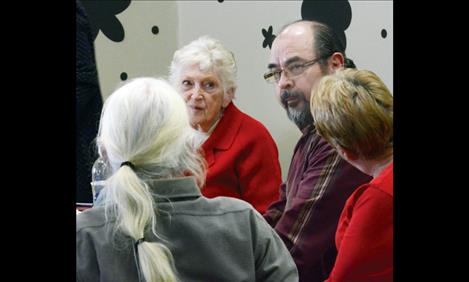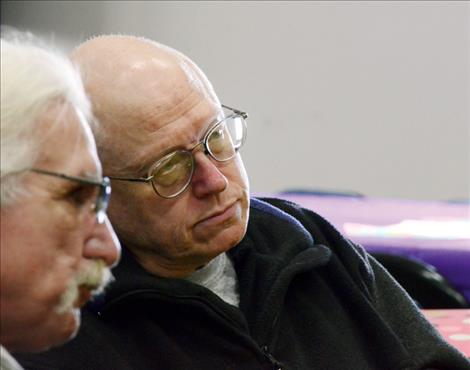Organization discovers ways to help veterans
Hey savvy news reader! Thanks for choosing local.
You are now reading
1 of 3 free articles.
ST. IGNATIUS – It was a different time. Bernie Azure’s dark hair was cut short and he was finishing a term in Vietnam.
“I was out on May 1, 1969,” he said.
As he waited to be discharged, he was told to get some civilian clothes so he would blend in with the general population. He discovered that veterans were being spit on as people expressed their anger about an unpopular war. The haircut often gave him away.
Azure thought he’d already gone through enough, but at home, the negative perception of the military forced him to keep his experience to himself, which made it hard to cope with the trauma.
“The less you said, the better.”
Thirty years later, in 2009, the experience was still weighing on his mind, so he went back to Vietnam to try and deal with everything he’d seen and done.
“I’m glad I went back,” he said. “To see the guys that bore the wounds we gave them and have them forgive us, it relieved a weight off of me.”
Azure shares his story to help others. He was invited with a group of vets to a “talking circle” hosted by the Kuilix chapter of the Daughters of the American Revolution to discuss veterans’ needs.
DAR is a volunteer group comprised of descendants of service members that helped aid in American independence. The organization supports veterans of all wars. They do volunteer projects including clipping coupons to send to members of the military.
“The DAR is a service organization with the desire to be of service in some way to our veterans,” said Bonnie Huber, DAR member. “We have our privileges and freedoms because they have done so much.”
So – what do veterans need?
“We seem to be in a perpetual state of war,” Azure said. “The most important thing we can do for these guys is support. Support veterans’ groups and services.”
Marine veteran Chris Poloynis said support doesn’t have to be complicated.
“It takes a lot to address this,” he said. “We can’t help the whole system but we can do the little things. The little things make a difference.”
Coffee was one of the little things that they suggested. Veterans groups, they noted, have seen budget cuts in the past few years and sometimes providing coffee can be difficult.
Veterans’ groups like the Veterans of Foreign Wars often provide support for vets when they need it. Army veteran Erwin D. Dunbar, Jr. is part of a group called Vet to Vet, which provides one-on-one conversation.
“Forty years later, just when you think you’ve got a handle on things, it comes up,” he said. “It doesn’t make a difference what war it was. They need support. They can’t do it by themselves. The stuff they went through, it cripples them in a way that often becomes self-destructive. We need to support the programs that help them.”
Army veteran Arlen Arends said the years a person spends in the military, whether they face combat or not, can have an impact. He said his son is currently a Blackhawk crew chief and talking to him triggered many of his own memories.
“I never realized how much not talking about it affected me,” he said. “For years, I tried to ignore it. I’ve realized that it does help to talk about it.”

















